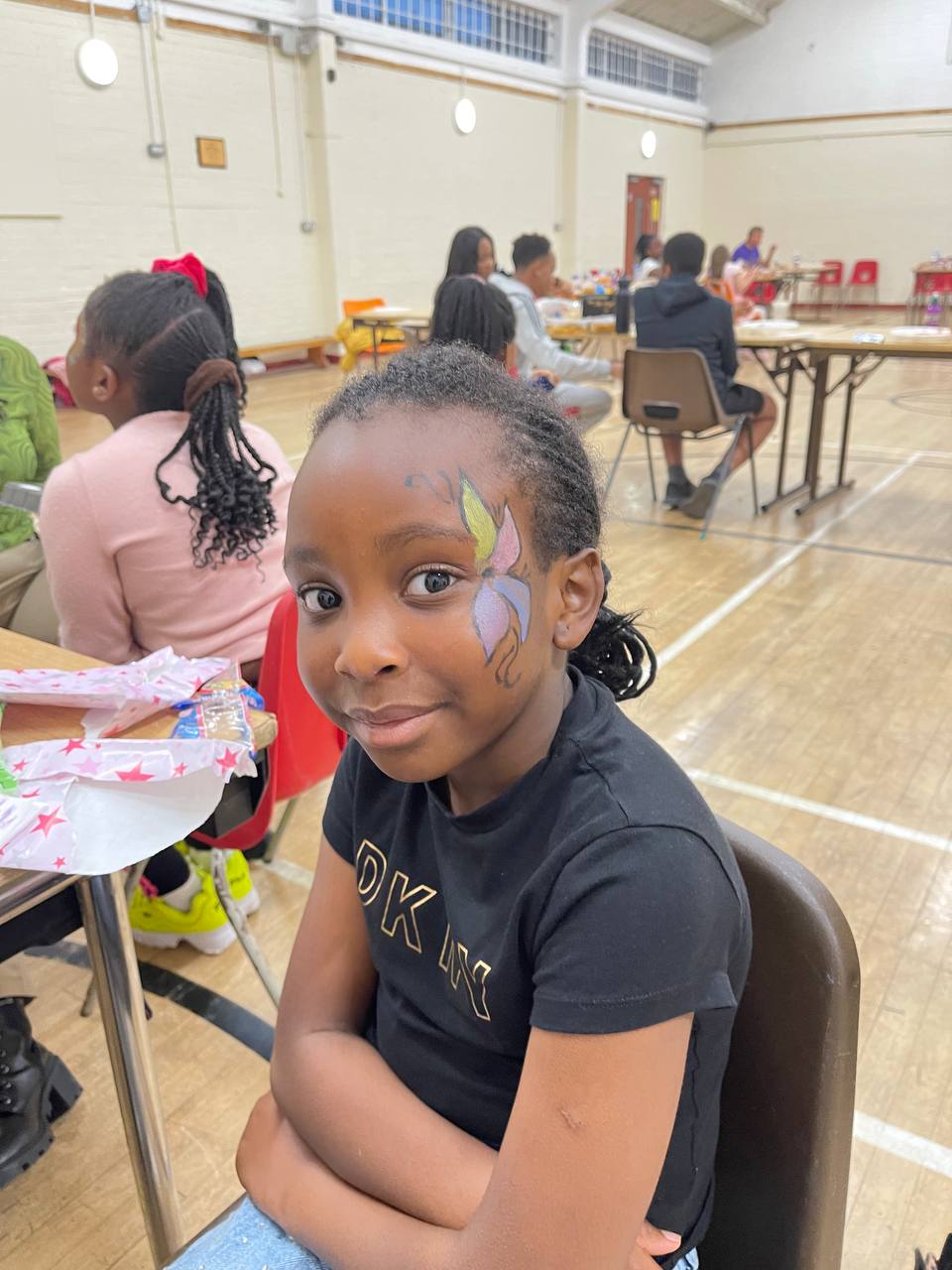sport is not only inspiring, it is also a real tool for inclusion and to guarantee fundamental rights of children, such as the right to play (Gustavo S.P. UNICEF). Young people should at least accumulate 60minutes of at least moderate intensity activity a day; this can involve lots of short bouts of physical activity and a range of intensities. These activities should include some that stress muscles and bones like yoga, jumping, skipping, and some that help promote movement skills (involving balance, coordination and body awareness). As an organization geared towards children development, we know that these guidelines are based on evidence that more active children and young people have better health outcomes, including cardiovascular and bone health, muscle fitness and weight status. There is also evidence that increased physical activity is associated with enhanced mental health, improved cognitive (mental) function, aspects of self-esteem, and reduced depression symptoms in young people.
Types of Sporting Activities
Other types of sporting activities for children and young people that we are engaged in, apart from the ones mentioned above are
- Basket ball games for kids
- Ring games for kids: it is a great sport for kids to stay in shape. It is fun for children and young people
- Table tennis games for kids
- Swimming games for kids: swimming in the pool or the ocean is a fun sports activity.
- Cricket games for kids
- Indoor bowling games: it is a recreational activity for many families , for those who are deprived, this program can make it up for such children.
- Figure skating and Ice skating games for kids: it can be a competitive kids sports activity.
- Skiing and Snowboarding Games: This game is done when it gets cold outside. Children and youth can get adventure and would want to experience extreme sports games in the snow.
- Rock climbing games and activities
- Fishing games and activities for kids.
Advantages of Sporting Activities for Children and Young People
Sport activities offer various benefits to vulnerable children and young people; participation in sports can improve children’s learning and skill development including empowerment, leadership and self-esteem. This contributes to their overall well-being and future prospects.
Specifically, sport activities offer both physical and social benefits to children. These are discussed as follows:
Physical Benefits: The physical benefit of outdoor kids sport such as soccer, skateboarding, hiking, biking, football, etc include building muscles, gaining acute flexibility, improving balance and coordination, losing weight and general endurance
Social Benefit: The social benefits of outdoor sports are extremely obvious and well beneficial. Playing sports with a lot of kids together can improve general social development, in that children and young people will learn to interact with each other naturally but with sports as the main social interaction will improve other facets such as leadership, self-esteem and general teamwork through the construct of the sports games themselves.
Participation in sporting activities can have a range of positive influence on children and adolescents. It is not enough to just participate – once they become talented at the sport activity; it makes their development that much better. Achieving competency at these tasks allows an individual to take advantage of personal and environmental resources that promote positive functioning in the present, reduce the risk for developing behaviour problems (these children are prone to such) and increase the likelihood for healthy adjustment for the future.
Activities that can bring the our organisation and Children and Adults together.
The activities that can bring our organisation, children and adults together include indoor/outdoor activities.
the outdoors is a great place for children, young people and adult to get together. It is weather permitting as fresh air can be invigorating and energizing, and allow for bonding between children, adolescent and adults. Some of these outdoor activities we are involved in include;
- Hide and Seek: This is a great way for the kids to run and explore but within the safety of a home environment. As Children Inspiration Organization, we will set some guidelines or rules in place so that no one gets lost or hurt during the game.
- Spinning Swingset: Some call this the Tarzan Swingset. It is a popular kid activity that requires some skilled handiwork. It requires a rope to connect two very large trees, and the rope must be tied in the form of a very secure knot on bothsides. Then the team need to either purchase a sporting swing which can be attached to the rope, or create your own by buying kid-friendly handlebar grips, which can be tied unto the rope. This activity requires close supervision and is more geared toward kids who are already 12 or 13 years old.
- Gardening: The team can prepare a garden which is a classic fun activity in which the children can bond and enjoy together. Prepare a nursery, get the children involved early in the process because this can be fun. They get to chose seeds, readymade plants and other plants equipment that they might want to use, after you plant the seeds together, you can have the children occasionally check on the plants, make sure there are no weeds nearby, and collaborate together on a watering schedule. Before you know it, the children will be running the entire outdoor garden may one day become good owners of a nursery/plant garden.
- Biking together: As a not-for-profit organisation, we and the young children can bike together in a quiet parking lot, local routes or even quiet streets. The adults can be in front, the kids in the middle and another adult in the back as the anchor. Apart from the fun derived from biking, it will create deep control abilities as well as courage in them.
- Local Sports: The interesting thing about sports games is that you don’t necessarily need a huge sports franchise in order to watch sports. Every town has a local high school or even college and generally there is almost always a football or baseball team for locals to come watch. The organisation can bring the kids alongside to watch these together as well as form their team in the long run. This will improve our ability to judge logically with objectivity as well as criticize logically where need arises.
- Dance classes: The team can organize dance classes for the children. Learning to dance early on is definitely a positive activity for the kid and can help with both physical and artistic development.
Other outdoor activities we will engage in, are hiking, mini golf, ice skating, gym, rockspot play area, etc
There are many reasons why we want to keep indoors with the kids. Sometimes it could be rain, cold, thunder, etc. the indoor activities that the team can enjoy are as follows: watching TV together, camping indoor- pull out sleeping bags, maybe even light a small bonfire and sit around the campfire and tell fun or scary stories. The best part is , if the children get sacred they can always go right back inside and into bed.
Another indoor activity is listening to nature. This can be a fun activity. The team can go to the mountainous area and have the children listen closely to natural sounds. As they listen closely, you can hear the tons of interesting sounds. The children will be amazed at all of the amazing sounds of nature that they have always heard but now can truly listen and take note.
This aspect is important as previous research found that play help children and young people to develop their social, emotional, physical skills. Play time also help to nurture optimal early childhood brain development. Also, children who play grow into adults who are better able to adopt and navigate through complex environment
Another service we intend to provide in this section is to offer children vocational trips that will expose them to the different opportunities available to them. It important to note that, by embarking children with cooperative play with other children, helps to develop skills such as creative thinking, problem solving, decision making, communication and others. It also enables children to fulfill their potentials by working to address issues at the earliest possible stage.
Short breaks services offer a valuable lifeline for families and give children and young people from poorer families with additional needs, opportunities to enjoy different experiences, make friends and help them to achieve their plans and ambitions in life. We will ensure that we generally develop participation and make it meaningful and real for children who find it hard to communicate their wishes, needs and aspirations within the time and resources available. We will find out what some children feel and want which can be complex and requires time and understanding. We will encourage and support the engagement of circles of support to act as advocates for a young person. This can be a very empowering way of developing the culture of participation.
Evaluation of Participation.
The process of evaluation will be built into our care and support sessions as a fun part of the session by including the young person in an activity that they are known are known to enjoy. Providing children with accessible evaluation formats at regular intervals will enable children to say whether or not they like an activity before they go home, for example, using happy and sad faces to enable the child to have a say.
We will be specific about what it is we are expecting a young person to communicate about, use questions that can be answered using yes and no responses and do not expect to find out too much too quickly.
Effective participation is not a one off event. Thus we will ensure the following;
- That the people viewing our evaluation of participation understand the level ability of the young person and therefore the best approaches to evidence gathering during short infrequent sessions.
- That all our workers are committed to putting the young person at the centre of all that they do and are aware of their responsibilities as an enabler and facilitator as well as a support worker and responsible adult.
- That reports and records of activities and visits that include communication from children are evaluated and made use of in reviews and that learning is made available to managers so that they influence the development of our organization’s offer, both individually and strategically.
- Record and celebrate all communications with children that have led to change, alterations or adaptions.
In summary, we will give carers of these vulnerable children and young people a much-needed break by taking the vulnerable children and young people on holidays within UK under the supervision of our well-trained staff. We will also give children and young people who are from poorer background, the privilege to participate in short break holidays.
Travel fuels curiosity, offers fresh perspectives and gives children and young people the opportunity to discover life beyond their backyards. They play a vital role in the curriculum which serves a wide range of benefits. Children learn through authentic experience and it can be an interesting way to explore new things.
Planning an Educational Tour
- First we will get help from a dedicated educational tour consultant who is experienced in working with children and young people.
- Tour Director: we will get a tour director to be with the children 24/7 who not only knows the ins and outs of each location they visit, but also knows how to keep the students active and engaged.
- Hands-on Activities: The tour will offer a perfect balance of cultural exploration and experimental activities such as STEM tours, service learning tours, language and cultural tours, Global Leadership summits, custom-designed tours, etc
Factors to Keep in Mind when Planning an Educational Trip
When deciding of the kind of educational trip, some factors or points need to be considered. This factors need to be a priority for key stakeholders – teachers, parents, trip organizers and also beneficiaries. Some the factors we will consider are
- Nature of Trips: An important component of an educational tour is the nature of the trip. While service learning is focused on the ‘socially beneficial’ aspect of it, an educational tour focuses on learning that lead to career betterment. Whether it is going to be an outdoor trip that exposes children to a never seen before biodiversity or a trip to space research centers exploring the secrets and science behind the working of the well, literally the entire world, it is important to contemplate and decide what to go for beforehand
- Children Interest: Children have a wide variety of interests. While it is unnatural and uncalled for young students to pick exactly where their interests lie at a growing age, an idea of what they want to do is important. We will therefore conduct a SWOT analysis, aptitude mappers, etc as some of the ways to figure that out.
- Destination: Again, an important consideration is a destination to be taken up for the tour. While voluntary solutions offer projects all across the world that included the USA, UK, Ireland, Australia, Malaysia and Kenya amongst others. Different kinds of projects and experiences are offered in these destinations and it is after evaluating one’s interests, natures of the project that the destination should be zeroed in upon. As Children Inspiration Team, we will thoroughly consider the destination for our projects that will offer the best outcomes for our children.
- Time: The time consideration plays a key role in attaining the desired goal when it comes to sending children for an educational trip. While a week to 10days is often the preferred choice, people who have lesser time at hand can go for a 3-4 long project as well. Our duration for each educational tour will be determined by the nature of trip and the different needs to be met.
- Short Term Goals: Goal attainment is of course, the obvious consequence and motivation for taking up any activity. Specially with respect to service-learning and educational tours, our immediate short term goals will be kept in mind along with other considerations. Short term goals may include working on a current project, needing a break, working on a hobby or simply a need of a new experience but as long as both short term and long term goals align, signing up for an educational trip is worth the effort.
- Long Term Goals: Service learning for children and young people has far reaching long term goals that include career benefits, a better understanding of a alien culture, capacity to chalk out a career, how to be an empathetic citizen, and ways to turn that empathy to action will constitute some of our long term goals.
- How “hands-on” is it?: one of the most components of educational trips is the opportunity to get “hands-on” work. The personal experience amplifies the learning capacity and invokes passions and energized action to reach goals in the long term. We will therefore determine such “hands-on” activities and carry them out for the benefit of the children.
- Group size: much like the group size is an important consideration when heading for an educational tour. Besides retention considerations, the magnitude of the impact of experimental learning is hampered if the group is not optimal. Thus, a consensus of the group size would be arrived at.
- Inclusions: since the grand focus of the project is to facilitate learning, children need their accommodation, food, transport and safety well taken care of. We intend to take of these inclusions as we get sponsors and funds.
- Affordability: Affordability is the final catch. Taking an educational trip overseas is not a small monetary commitment but owing to the far-reaching benefits it yields, it becomes crucial for a wholesome and engaging learning experience. Our trips will be very much affordable for these young children.
Benefits
Field trips contribute greatly to build self-confidence and foster a sense of teamwork and community. It is highly recommended for trips to be added to part of travelling. Children definitely get abundant memorable experience and deep knowledge of various aspects in life.
The educational field trip is a perfect combination of sight-seeing, learning, travelling and hands-on learning opportunities. These trips contribute significantly to the cognitive development of children mostly because educational travels allows students to witness authentic things beyond the theory of subjects by actually experiencing and seeing in real life. The children will interact with other people from all sections of the society.
It gives them the chance to gain new perspectives and learn from complete strangers with different opinions. Along with professional skill development, students can get a chance to learn local customs and build independence and confidence.
Taking students into a new as well as unfamiliar environment provides them with an amazing experience of travelling with peers and sharing responsibilities.
Moreso, these children can save unforgettable memories in their lives which is indispensable to anyone. What memory is, it definitely become part of the students’ lives simply because it gives them ample opportunity to learn from their own experiences and from the experiences of others. Places like zoo and nature centre often have an interactive displays that allow children to touch plants or animals.
The benefits of our educational field trips contribute greatly to career development and social skills development later in life.



